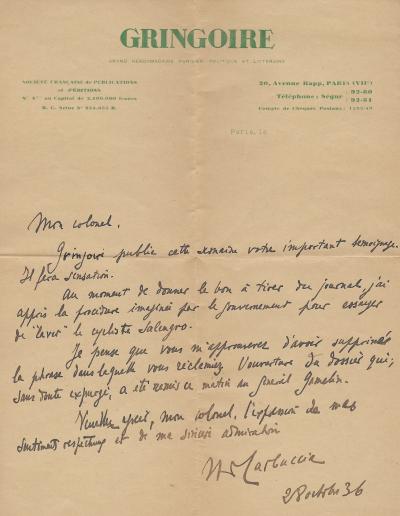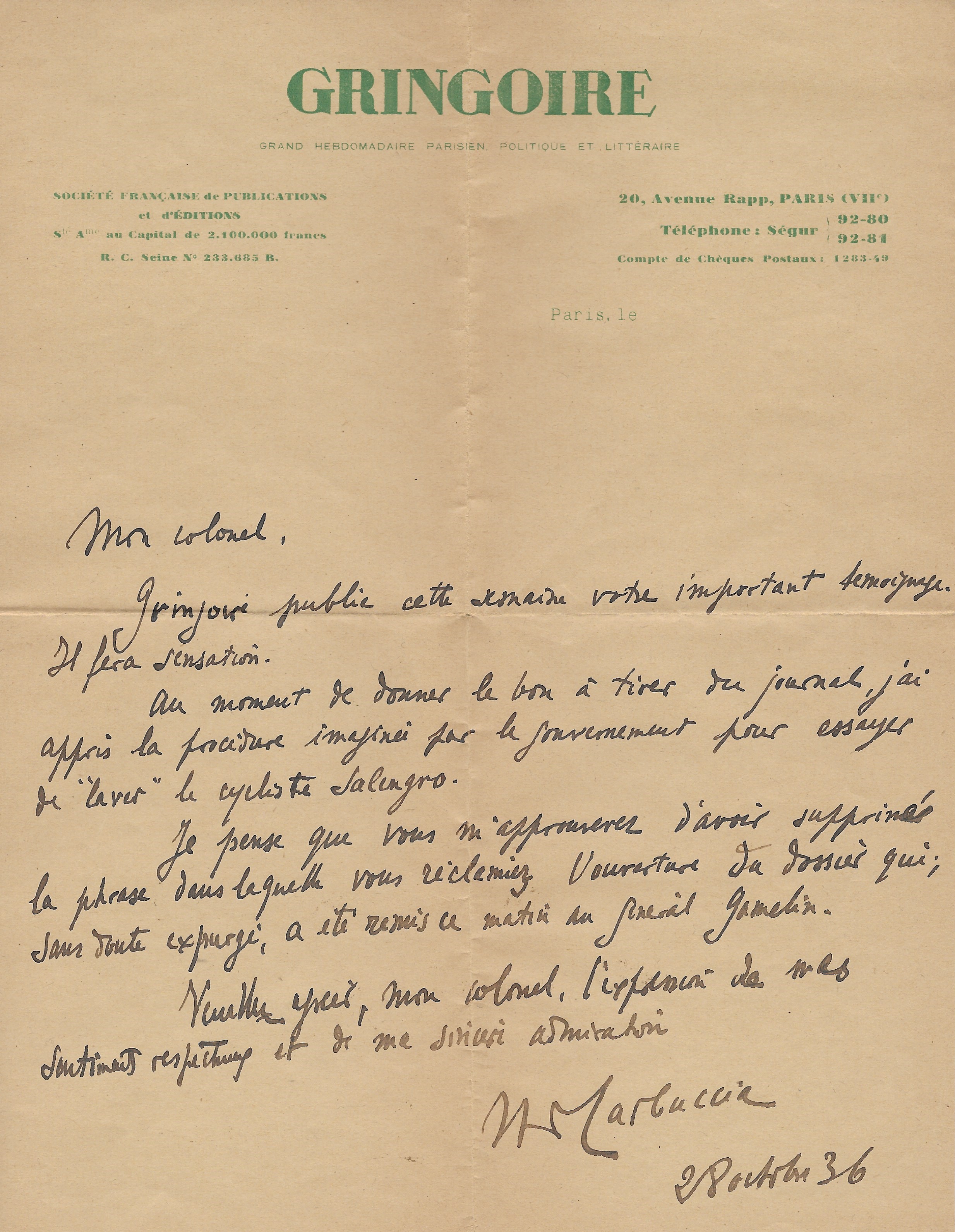Horace de CARBUCCIA - Signed autograph letter - Gringoire - the Salengro affair
Horace de CARBUCCIA (1891 - 1975), French journalist and politician, founder of the nationalist newspaper Gringoire. Letter of historic significance concerning the Salengro Affair, the wrongful accusation of which was desertion of Prime Minister Roger Salengro during the First World War, leading to the latter's suicide. Autograph letter signed to Colonel Achille-Philippe Hepp. October 28, 1936; 1 in-4 page on the letterhead of the Gringoire newspaper. Letter of capital importance in the Salengro Affair, in which we learn that Colonel Hepp, who had under his command the soldier Roger Salengro during the war, communicated information suspecting Salengro of desertion, to the newspaper Gringoire, and to asked for the file to be reopened when General Gamelin was preparing to make a public report on October 29: “Colonel, Gringoire is publishing your important testimony this week. It will cause a sensation. When giving the proof for the newspaper, I learned of the procedure devised by the government to try to "wash" the cyclist Salengro. I think you will approve of me having deleted the sentence in which you demanded the opening of the file which; no doubt redacted, was handed over this morning to General Gamelin. Please accept, Colonel, the expression of my respectful greetings and my sincere admiration… ” The Salengro Affair began in 1936 when Roger Salengro, Minister of the Interior in the Blum government, decided to dissolve the far-right leagues. Nationalist newspapers attack him, including the French daily Action by Charles Maurras, which is indignant that he may bow to the tomb of the unknown soldier, while rumors accuse him of desertion during the war. In fact, on August 2, 1914, Salengro, a bicycle courier, was captured by German soldiers when he had been authorized to recover the body of his friend, Sergeant Demailly, killed the day before. Without news, he is first declared dead, but he ends up announcing by mail that he is taken prisoner. Some then suspect him of desertion. At the end of the war, he was acquitted by the War Council. The far-right newspaper Gringoire, edited by Horace de Carbuccia, caricatures him willingly as a cyclist fleeing the enemy. The controversy swells, Salengro is slandered, his opponents readily nickname him the “cyclist Salengro”. On October 29, 1936, a commission of inquiry headed by General Gamelin delivers a report confirming his innocence. In parliament, Léon Blum and Roger Salengro defend themselves, the parliamentary majority and the moderate right vote reject the accusations of the far right. But despite this, on November 6, the journalist from Gringoire, Henri Béraud, drags the minister one last time in the mud under the title “The Proprengro affair”. This is too much, Salengro, decides to put an end to it and commits suicide on November 17, 1936. Neither Béraud nor Gringoire will express any regrets.
This description has been translated automatically. please click here Click here to display the original language FR
Sold
This item is not available. Please click on « View the catalog » to see similar items available.
Delivery France:
22.10 € incl. VAT (*)
Country prices, click on See
See more
Hotline
Please contact us for any question regarding this object. For any other inquiry, we invite you to fill the contact form.
Other items from the category « Books »



